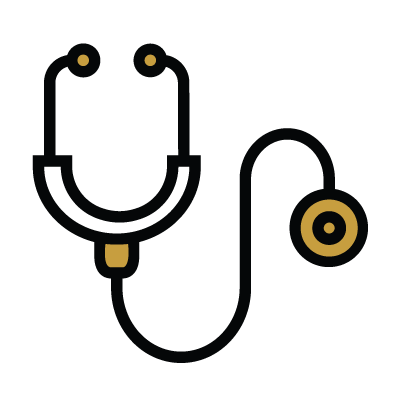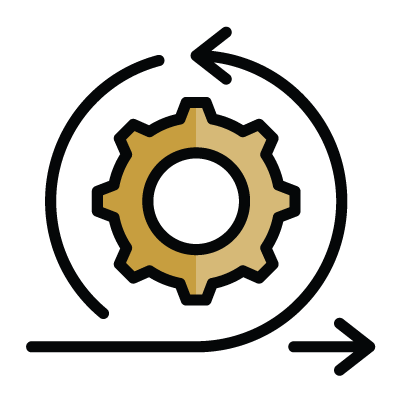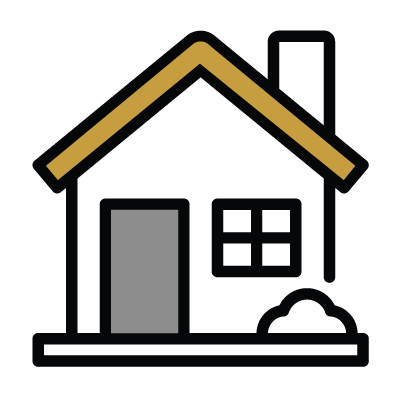Supervised medical detox and residential recovery program with dual diagnosis therapy to help overcome opioid abuse in the heart of the San Fernando Valley.
Updated On: Oct. 16th, 2025
The Encino Recovery and Detox Center offers opioid addiction treatment in Los Angeles. Our detox and inpatient treatment programs are designed to help you lay a strong foundation for lasting recovery.
Over 80,000 overdoses were from opioids in 2022 alone. This highly addictive prescription drug is the number one cause of overdoses in the United States. Opioids are a class of pain pills usually prescribed for chronic pain management, post-surgery recovery and muscle spasms.
They bind to the opioid receptors in the brain making them highly addictive and dangerous if taken or a long amount of time. Examples of frequently abused opioids include:
















Memory loss, small pupils, drowsiness, flu-like symptoms, nausea, constipation or diarrhea, slowed breathing, high rate of overdose and death.
Social isolation, anxiety, depression, irritability or aggression, paranoia, lack of self-care, lack of self-care, neglecting responsibilities, strained relationships, financial problems, legal troubles, homelessness
Opioid detox & recovery can be distressing, painful and even dangerous. It´s important to detox before starting residential treatment in a supervised medical setting. Detox from opioids can cause painful symptoms that may require the need for Medication Assisted Treatment such as methadone or suboxone. Some common side effects of opioid withdrawal may include:
Our detox programs tend to be about 3-5 days but can vary for everyone based on different factors. Some of these include:

Our detox program offers a 24/7 supervised approach where vitals will be monitored to ensure a safe detoxification. Withdrawal from opioids can cause dangerous symptoms if not done properly. Medication Assisted Treatment may be used to reduce cravings and acute withdrawal symptoms.

Residential treatment will help you understand the root of addiction and build positive coping skills. Therapy services include CBT, DBT, trauma-focused therapies, dance & movement therapy, art therapy and yoga.

The best recommended treatment for opioid use disorder is medical detox followed by an inpatient rehab program to support long-term recovery. Medications are often used to help reduce cravings and symptoms of withdrawal. For opioids, these include methadone, suboxone and naltrexone.
Recognizing the signs in yourself or a loved one that struggles with an opioid addiction is important to be able to reach out for support and get treatment. Some common signs someone struggles with opioid use disorder include taking more opioids than prescribed, nausea, vomiting, depression, anxiety, flu-like symptoms, isolation, strained relationships, financial problems, etc.
The timeline of withdrawal from opioids can look different depending on a variety of factors including frequency and length of use, underlying health problems, family history of drug use, a stable support system at home, etc.
Opioids fundamentally change the chemicals in the brain and release large amounts of endorphins. This can cause increased euphoria and tolerance, making them highly addictive. Opioids can affect mental health by increasing anxiety and depression, especially during periods when the drug crashes.
New advancements in opioid addiction treatment focus on evidence-based approaches like medication-assisted treatment (MAT), which combines FDA-approved medications like buprenorphine or naltrexone with cognitive behavioral therapy (CBT). These treatments address both the physical and psychological aspects of opioid substance use disorders. Innovative options also include dual diagnosis treatment for individuals with co-occurring mental health disorders and holistic approaches like mindfulness and wellness therapies to support long-term recovery.
Opioid substance abuse imposes significant costs on individuals and society. For individuals, the financial burden of opioid substance use can include spending on prescription drugs, legal fees, and loss of income. For the U.S. healthcare system, the annual cost of opioid addiction exceeds $78 billion due to expenses related to treatment programs, emergency services, and reduced productivity. Choosing a specialized addiction treatment center can mitigate these costs by addressing substance use disorders effectively.
The most commonly used medications for opioid addiction are buprenorphine and methadone, both part of medication-assisted treatment protocols. These drugs help manage withdrawal symptoms, reduce cravings, and stabilize individuals during their recovery journey. Combined with therapies like group therapy and cognitive behavioral therapy, these medications are integral to achieving long-term sobriety. Treatment plans at Los Angeles treatment facilities often integrate these medications with detox programs and relapse prevention strategies.
To get admitted into a program at a treatment center like Encino Detox, you can contact our team for an initial consultation. Admissions often begin with an evaluation of your substance use, medical history, and personal needs. Our staff will recommend the appropriate level of care, such as inpatient treatment, intensive outpatient, or partial hospitalization. Many of our programs accept health insurance, ensuring you receive comprehensive care tailored to your unique needs.
The success of an addiction treatment program is measured by factors like sustained sobriety, improved mental and physical health, and better relationships with loved ones. A comprehensive treatment plan includes tools like aftercare support, sober living arrangements, and access to support groups to prevent relapse. Encino Detox prioritizes long-term well-being and individualized care, ensuring our clients thrive beyond their time at our treatment facility.
Inpatient rehab costs can range from $5,000 to $30,000 per month depending on the treatment services offered, the duration of stay, and the treatment center location. Programs in Southern California, including Los Angeles County, often provide a combination of medical detox, therapy sessions, and residential treatment in a supportive environment. Health insurance often helps cover costs for substance abuse treatment.
An Intensive Outpatient Program (IOP) provides flexible and effective care for individuals with opioid substance use disorders. Unlike inpatient rehab, IOPs allow clients to continue working or attending school while receiving structured treatment. These programs focus on relapse prevention, group therapy, and personalized counseling sessions to support addiction recovery. Choosing an IOP in Los Angeles ensures access to quality care within a holistic approach to wellness.
Opioid addiction treatment centers in Los Angeles provide a wide range of services, including medical detox programs, medication-assisted treatment, dual diagnosis treatment for co-occurring mental health conditions, and various therapy modalities. These centers often offer partial hospitalization, inpatient treatment, and outpatient rehab options to meet diverse needs. Aftercare support, including sober living and support groups, is also essential for long-term recovery.
Therapies offered at Los Angeles addiction treatment centers include cognitive behavioral therapy (CBT), group therapy, family counseling, and holistic approaches like yoga and mindfulness. Evidence-based therapies focus on addressing the root causes of addiction and improving mental health. Many programs also incorporate dual diagnosis treatment and relapse prevention strategies tailored to each client’s unique needs.